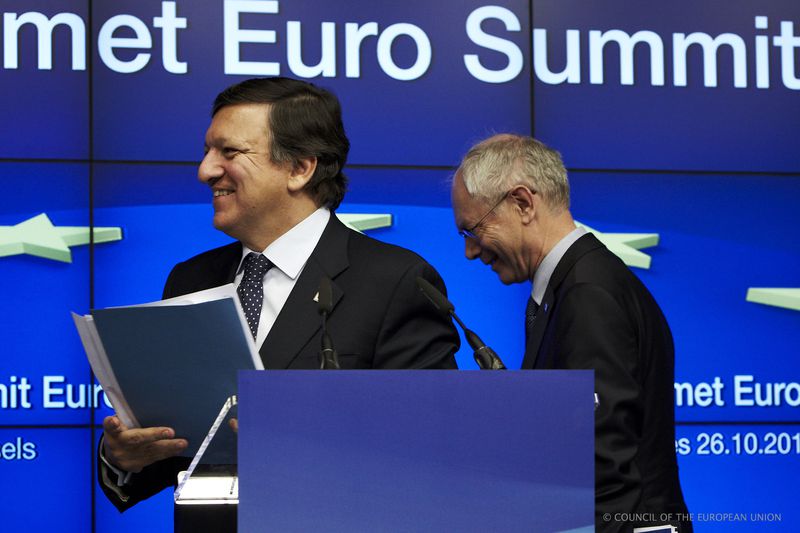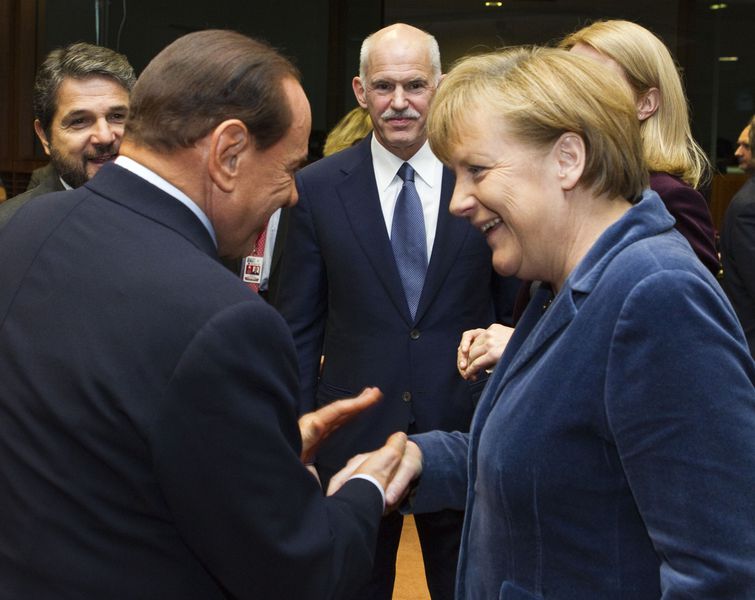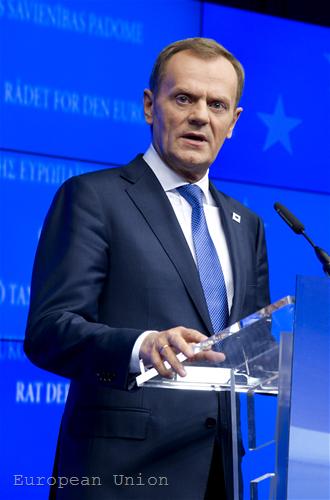There will be a Second Eurozone Summit on Wednesday, 26 October
Ralitsa Kovacheva, October 21, 2011
 Final decisions on the comprehensive response to the debt crisis will be taken on Wednesday, October 26, a joint statement by German Chancellor Angela Merkel and French President Nicolas Sarkozy reads. Despite the fact that the European Council has been postponed with one week, the time would still not be enough to reach a compromise on the controversial issues. So on Sunday, the leaders of 27 EU countries will decide on the recapitalisation of banks, but the remaining items of the agenda related to the eurozone will be postponed for the summit on Wednesday. Then the euro area leaders could finally answer the questions about the EFSF leverage, the second Greek loan and private sector involvement in restructuring the Greek debt.
Final decisions on the comprehensive response to the debt crisis will be taken on Wednesday, October 26, a joint statement by German Chancellor Angela Merkel and French President Nicolas Sarkozy reads. Despite the fact that the European Council has been postponed with one week, the time would still not be enough to reach a compromise on the controversial issues. So on Sunday, the leaders of 27 EU countries will decide on the recapitalisation of banks, but the remaining items of the agenda related to the eurozone will be postponed for the summit on Wednesday. Then the euro area leaders could finally answer the questions about the EFSF leverage, the second Greek loan and private sector involvement in restructuring the Greek debt.
As Angela Merkel's spokesman Steffen Seibert explained, Ms Merkel and Mr Sarkozy will meet again on Saturday night. They have agreed that the whole comprehensive package of measures will be discussed in detail on Sunday so that it can be finally approved on Wednesday.
Greece
The report of the Troika (the European Commission, the ECB and the IMF) expressed clear doubts about the sustainability of the Greek debt which requires parameters, already agreed about the participation of the private sector in its restructuring, to be changed. On 21 July it has been agreed that financial institutions will lose on average 21% of the value of Greek bonds but now it is believed that it is too insufficient and losses of around 50% are being discussed. "On the basis of the report of the troika and the analysis of debt sustainability in Greece, Germany and France to ask that negotiations be taken up directly with the private sector to find an agreement that improves the debt sustainability," the statement by Berlin and Paris says.
The problem is that the deal with the private sector should be entirely voluntary, otherwise the rating agencies have warned that they would declare a Greek default. However, if a loss of 21% can be assumed as acceptable for the private sector, 50% could hardly be taken as a "voluntary participation". Back in July, however, EU leaders made it clear that they were ready to take the risk of Greece going bankrupt if that was the price to reduce its debt to sustainable levels.
The EFSF
The stumbling block, however, is the dispute on how to increase the efficiency of the eurozone rescue fund EFSF. A few days ago the eurozone countries endorsed the new functionalities of the rescue fund, agreed by the leaders on 21 July – to buy debt on secondary markets and to allocate funds to recapitalise banks. To that end, however, the EFSF needs significantly more funds than the current 440 billion euros - according to various sources from 1.5 to 2 trillion euros. The question is how to raise these funds, without eurozone countries paying extra money.
One idea, supported by France is the fund to be transformed into a bank, backed by the European Central Bank. The ECB itself, however, as well as Germany, is opposed because it would call into question its independence and would change its mandate. According to European Commissioner for Economic and Monetary Affairs Olli Rehn, quoted by German newspaper Handelsblatt, refinancing the fund by the ECB "could be difficult" and "we have to consider what the EU Treaty allows and what it does not allow."
The Germans prefer the option where the rescue fund would guarantee part (about 20% to one third) of any new debt issuance by the euro area. The aim is to restore market confidence and to increase the EFSF's funds to 1-1.5 trillion euros. However, it is not clear whether this would not create even more confusion in the markets. On the other hand, the French fear that any wrong step could cost their AAA credit rating, which would put into question the very operations of the EFSF that relies on the highest credit rating of six eurozone countries to raise market funding.
A decisive factor decisions to be delayed again is the resistance of the German Bundestag on any decision to leverage the EFSF which would increase Germany's financial commitments to the euro area. Chancellor Merkel does not have enough time to try and gain parliamentary support. The decision of the Federal Constitutional Court, in terms of the eurozone rescue operations, has empowered the parliament to approve in advance all government decisions in this area. There are hopes that between the Sunday Summit and the next one on Wednesday there will be clarity about the method chosen to leverage the EFSF and Chancellor Merkel will be able to persuade the Bundestag to support her.
Yesterday [20 October] Angela Merkel and Nicolas Sarkozy held a video conference with US President Barack Obama and British Prime Minister David Cameron. "Chancellor Merkel and President Sarkozy fully understand the urgency of the issues in the Eurozone and are working diligently to develop a comprehensive solution that addresses the challenge and which will be politically sustainable," the White House's statement says.
Today [21 October] the eurozone finance ministers are gathering in Brussels in an attempt to solve some of the controversial issues. The meeting is expected to last a long time. It is very indicative that no briefing is envisaged after that meeting.
 | © The Council of the European Union
| © The Council of the European Union | © The Council of the European Union
| © The Council of the European Union | © European Union
| © European Union Klaus Regling | © Council of the EU
Klaus Regling | © Council of the EU Mario Centeno | © Council of the EU
Mario Centeno | © Council of the EU Mario Centeno | © Council of the EU
Mario Centeno | © Council of the EU